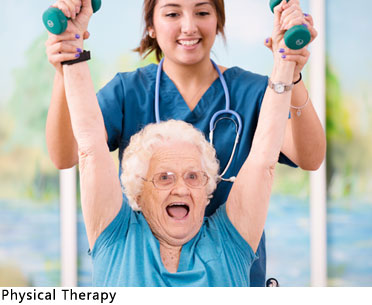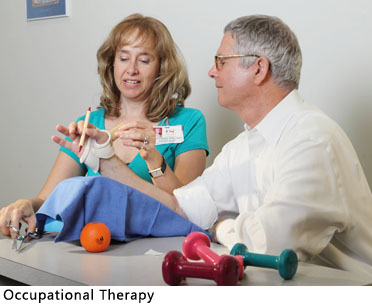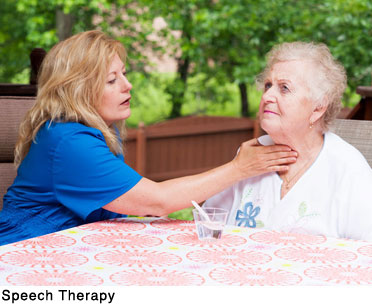Rehabilitation is a vital part of recovery from surgery, accident, or illness. Our goal is to help our
patients return home as quickly as possible with confidence and independence.
Oakridge Gardens provides both inpatient and outpatient rehabilitation therapy seven days a week through a partnership with Functional Pathways. Functional Pathways is a therapist-owned, medium-sized, national contract therapy provider with over 23 years of experience serving senior living communities. Functional Pathways supports our mission and vision to provide premier rehabilitation services through a professional, service-oriented staff.
- State-of-the-art rehab gym and equipment
- Spacious, private rooms
- On-demand dining
- Flat-screen TVs and Wi-Fi Internet access
- European-style, walk-in showers
Our licensed and trained physical therapists work with each individual to develop a care plan to meet their specific needs and care requirements. Our goal is to help our patients build strength, range of motion, balance, and coordination so they can enjoy a better quality of life.
Physical therapists focus on:
- Gait training to restore stability when walking
- Transfer training to enable safe movement to and from chairs, vehicles, beds and bathroom facilities
- Stair climbing
- Improving balance and decreasing fall risk
- Post-amputation care with wounds, range of motion and gait training
- Improving general strength, endurance and flexibility/range of motion
- Training with assistive devices, including walkers, canes, wheelchair mobility and power chair mobility
- Pain management, using a variety of methods
When an illness or accident compromises a person’s ability to perform the daily tasks of self-care, food preparation, or problem solving, our occupational therapists use targeted activities to improve the everyday activities of our patients to help them become as independent as possible.
Occupational therapists focus on:
- Home management tasks such as cooking.Self-care essentials, like getting dressed, using the restroom, grooming, and bathing
- Cognitive retraining in judgment, problem solving, visual memory, and sequencing
Speech and voice problems in older adults can occur with age, trauma, brain injury, or damage to central or peripheral nervous systems caused by strokes, Parkinson’s disease, amyotrophic lateral sclerosis (ALS), multiple sclerosis, Huntington’s disease, cerebral palsy, and tumors.
Speech Therapists focus on:
- Assessment of each patient’s communication abilities through physical examination of facial muscles, structure, symmetry, and strength
- Implementation of standardized tests to determine a treatment plan
- Improving communication, speaking, and swallowing skills
- Developing strategies that help reduce the risk of aspiration pneumonia and maintain proper nutrition and hydration
- Working with family members and other caregivers to provide strategies to facilitate and maintain functional communication




